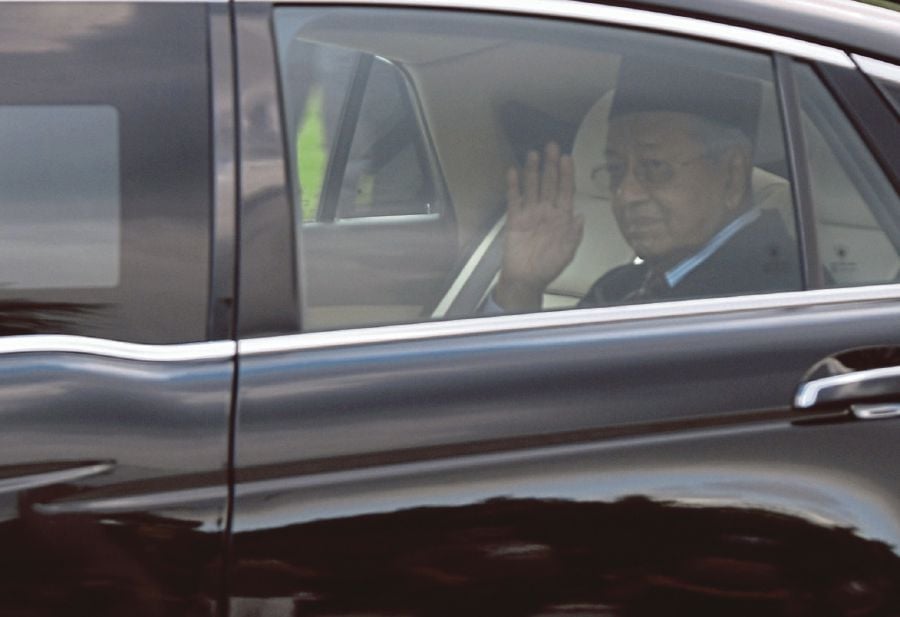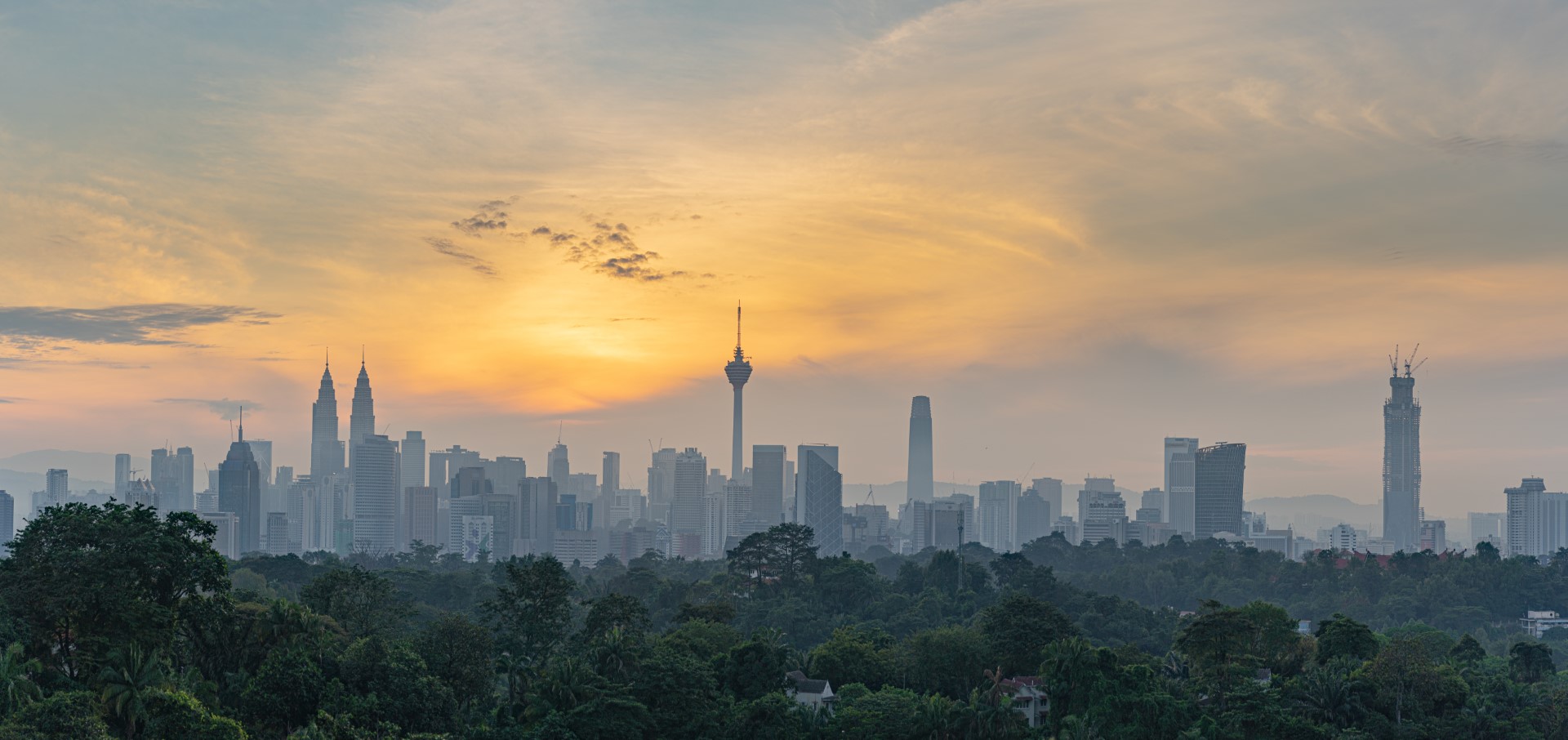This story was updated Feb. 28, 9:50am. As this is a developing story, more updates will be made as the situation progresses.
After a dramatic few days in Malaysian politics, a number of things are slowly becoming clearer. The country has never before experienced a political crisis like this, so there is no clear precedent for its resolution. At this point the existing government has been dissolved and only Mahathir remains as Interim Prime Minister with full support of the Civil Service.
Apparently, there was a plan to form a new government coalition to replace the existing government coalition, Pakatan Harapan (PH). It also appears this new coalition would be mainly Malay and exclude the main Malaysian Chinese-majority party, DAP, which was part of the (now dissolved) government coalition.
It also seems that a key player is leading this new direction was Azmin Ali, the number two man in PKR, a party also forming part of the PH coalition and is headed by Anwar Ibrahim, the man supposedly to succeed Mahathir. However, Anwar and Azmin have been locked in a power struggle, with some observers believing that Mahathir favours Azmin as the next Prime Minister.
Mahathir teamed up with former foe Anwar to form the PH coalition, which was strong enough to overthrow the previous government by winning GE14 in stunning fashion. However, despite a unified front in the run-up to the 2018 elections, it has always been an uneasy relationship; hardly surprising since Mahathir was a key figure in putting Anwar in jail for sodomy and corruption in 1999 — charges many suspect were politically motivated.
There are plenty of pundits and political observers who have the opinion that Mahathir will attempt at preventing Anwar from ever becoming Prime Minister, and at this point the case seems to be clearer than ever. Opinions rumour that Mahathir would instead subtly push for Mahathir to see his own son, Mukhriz, becoming Prime Minsiter in the future. Mukhriz, 55, is currently Chief Minister of Kedah, but has so far never held a Cabinet posting.
Suggested by some as a ploy to establish a “backdoor government,” the efforts to form a new coalition failed at the last minute, although the exact reasons are not entirely clear. It seems that the main opposition party, UMNO, would only join it en bloc and Mahathir bluntly stated that he would not be keen to work with his former political party, especially with those members he considered corrupt.

Nevertheless, supporters of Azmin Ali decided to leave the PKR party and join the opposition.
If you find all this confusing, you’re not alone. Even distilled down to its most basic facts, the complexity of Malaysia’s race- and religion-based parliamentary politics, coupled with all the various players involved – and a generous measure of things that are genuinely unknown and thus subject to speculation – make following the nuances of this political crisis quite challenging.
In the immediate aftermath of the peak of the crisis (so far), Mahathir claimed that all he was trying to do was to create a non-political, unified administration which would comprise people from all parties. According to him, this was to try and have the country run by people who put the country first and not their particular party.
This was certainly an ambitious objective, and because it failed, he decided to resign as Prime Minister. Naturally, there is a dose of healthy scepticism in some quarters regarding this rationale offered by Mahathir, whom many regard as a well-seasoned master of political gamesmanship and manipulation.
Certainly, a so-called unified government free from partisanship and opposition is not only nearly impossible to imagine in Malaysia — political experts largely question whether it would even be desirable. A healthy opposition is necessary in a thriving democracy: beyond offering different perspectives and opinions on various matters, it further serves as a check on the authority of the ruling party or coalition. A fully unified government being spearheaded by one man isn’t a democracy at all; it’s dangerously close to an autocracy.
Indeed, ironically enough, despite his resignation, Mahathir alone now effectively runs the country as its interim PM because the former coalition has been dissolved. It seems quite possible that he hopes to continue as Prime Minister and become the eighth leader of the country, following tenures as its fourth and seventh. He said, “If it is true that I do command the support [of MPs], I will return [as Prime Minister]. Otherwise, I will accept anyone who is chosen.”
It is the King’s job to select a new Prime Minister based on the will of the members of parliament. Traditionally, this has been the leader of the party with the most seats. In the past, it has always been the leader of UMNO, the largest party under Barisan Nasional, the coalition which ran the country since independence until its historic defeat in 2018. When the new PH government took over, however, Mahathir was selected because he was the clear leader of the winning coalition, even though his particular party, PPBM, did not have the most seats.
Amid this ongoing political crisis, the King decided to meet with every one of the 222 MPs—a mammoth task— and interview them to state if they wanted to dissolve parliament, meaning fresh elections, or name who they would support as the next Prime Minister.
Apparently there was no clear favourite for Prime Minister and it seems clear that different parties have proposed their own candidates preventing any one person winning the majority of votes.
Mahathir has announced that the King would like Parliament to vote on who should be Prime Minister, scheduled take place on Monday, March 2nd 2020. The results of the vote is hoped to produce a solution to end this political hang. Should multiple votes be cast eliminating less-favoured candidates, an internal decision can be reached; or if not, a snap election would then be carried out.
The latter is clearly not desirable in the face of the threat to the public and the economy from the Covid-19 measures still ongoing.
Clearly, the (supposedly) final chapter of Pakatan Harapan’s historical tenure saga is still being written.
"ExpatGo welcomes and encourages comments, input, and divergent opinions. However, we kindly request that you use suitable language in your comments, and refrain from any sort of personal attack, hate speech, or disparaging rhetoric. Comments not in line with this are subject to removal from the site. "

















